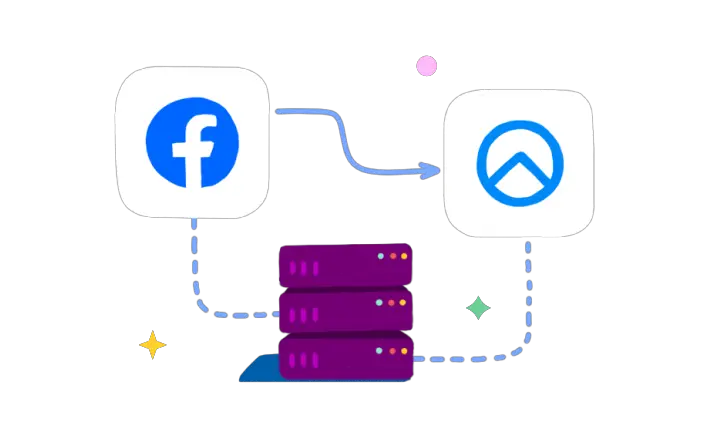Benefits of Using Facebook CAPI

Facebook has released a new feature, the Conversions API, which replaces the Facebook Pixel. With this new feature, advertisers can send data directly from their servers to Facebook. This will allow them to track user activity both inside and outside of their app. Using the CAPI will allow them to set certain parameters that allow Facebook to track user behavior.
Conversions API replaces the Facebook Pixel
The Facebook Conversions API replaces the Facebook pixel in many ways, but one major difference is that it can track conversion data both online and offline. This allows advertisers to optimize their campaigns across all channels, instead of tracking conversion data separately for each channel. The API is also more accurate than web browser tracking, so it provides more insights into the sales funnel. In addition, it incorporates CRM data and qualified leads.
Setting up the Facebook Conversions API is a complicated process, but a developer or advertising agency can guide you through the process. You will need to specify which events to monitor and which parameters to use. You can find detailed instructions in Facebook’s article “Setting Up Facebook Conversions API.”
While the Conversions API isn’t a replacement for the Facebook pixel, it improves its accuracy. It can also capture data that was previously lost in browser events, which means that you’ll have better data for ad optimization. The new tool also allows you to incorporate CRM data into your ad campaigns, which will give you more insight into your marketing funnel and improve the efficiency of your ad campaigns.
When used in conjunction with Facebook’s ad platform, the conversions API provides more accurate tracking and reporting than Facebook’s pixel. The new API is also more flexible, allowing you to control the data you share and use. This opens up new possibilities in tracking important events, such as in-app conversions, email open rates, and in-store purchases.
The Facebook Conversions API allows online marketers to offer complete data control and transparency to their customers. The Conversions API also allows you to send data to Facebook even if the user’s browser is blocked. Furthermore, the API does not rely on cookies, so it is more reliable than the pixel. It also avoids compatibility issues with ad blockers. As a result, it ensures accurate Facebook tracking.
Another important feature of the Conversions API is the ability to create customized setup instructions. By adding parameters for each event, you can set parameters for tracking and send instructions to your customers. The API will also allow you to track events that the Pixel cannot track. The Conversions API will give you much more information than the Pixel can track.
Apple has also introduced an update to iOS that limits the use of cookies for tracking on Apple mobile devices. This will affect the ability to create targeted Facebook ads on iOS devices. It will also limit the size of custom audiences and retargeting audiences. The Facebook Conversions API will compensate for these changes.
The Facebook Conversions API is a great tool for marketers that use Facebook ads. Its increased accuracy helps advertisers improve attribution and reduce the cost per action. With better data, the Facebook algorithm will be able to serve ads to customers with the highest potential for conversion.
It allows advertisers to send data directly from their servers to Facebook
Facebook CAPI is an excellent tool for marketers. It helps them better manage data sharing, including allowing them to send data directly from their servers to Facebook. This feature eliminates the need for browser-based pixel tracking. It can also help advertisers avoid retargeting customers who already purchased something.
This API is also known as server-side tracking. It lets advertisers send data directly from their servers to Facebook without having to go through the Facebook Ads Manager. This helps advertisers to track their performance in real time, and helps ensure data privacy. However, many advertisers have had trouble with the tracking accuracy of their campaigns in the past. Facebook’s CAPI is designed to improve tracking accuracy and abide by user privacy compliance standards.
Facebook CAPI has several advantages, which make it the best option for marketers. The first one is easy to setup: Facebook offers a template that can be easily integrated with other systems. For example, if you are using Google Analytics 4, the template can use Google Analytics 4 events to send data to Facebook. Another advantage is that this solution doesn’t require complex technical knowledge and can be used by small businesses. The cost of this option is lower than the third option.
Facebook CAPI can help marketers offer transparency and personalization. It also reduces duplication. The CAPI is also compatible with Facebook Pixel and can help marketers track campaign performance and optimize campaigns. But it is best to work with a developer to set up the CAPI and Pixel together.
GDPR has changed the way advertisers track users on Facebook. Under GDPR, customers must opt-in to receive tracking data. This makes tracking less reliable. Facebook is also less able to attribute specific purchases to advertisements. Without marketing attribution, Facebook ads look less effective and cost more.
Facebook can increase conversion rates by 9-10%. This can happen through the use of hyper-targeted ads and audience triggers. But before you can fully optimize Facebook conversions, you should have a good understanding of your audience and its triggers. The Facebook Conversion API can help you gather the relevant client information.
It allows advertisers to track user activity outside of the app
Facebook CAPI, or Facebook’s Common Advertising Policy Implementation, is a standard mechanism for advertisers to track user behavior outside of the app. This allows advertisers to better understand the performance of their ad campaigns. This method is simple to implement and doesn’t require coding skills. You can implement it yourself using one of the many commerce platforms, or hire a developer to do it for you.
CAPI enables advertisers to collect information on user behavior outside of the app and share it with Facebook for targeting, measurement, and optimization. It allows you to send information to Facebook’s Ads Manager without having to embed tracking pixels in your website or app. While Facebook Pixel collects event and conversion data, CAPI allows you to track user activity outside of the app.




